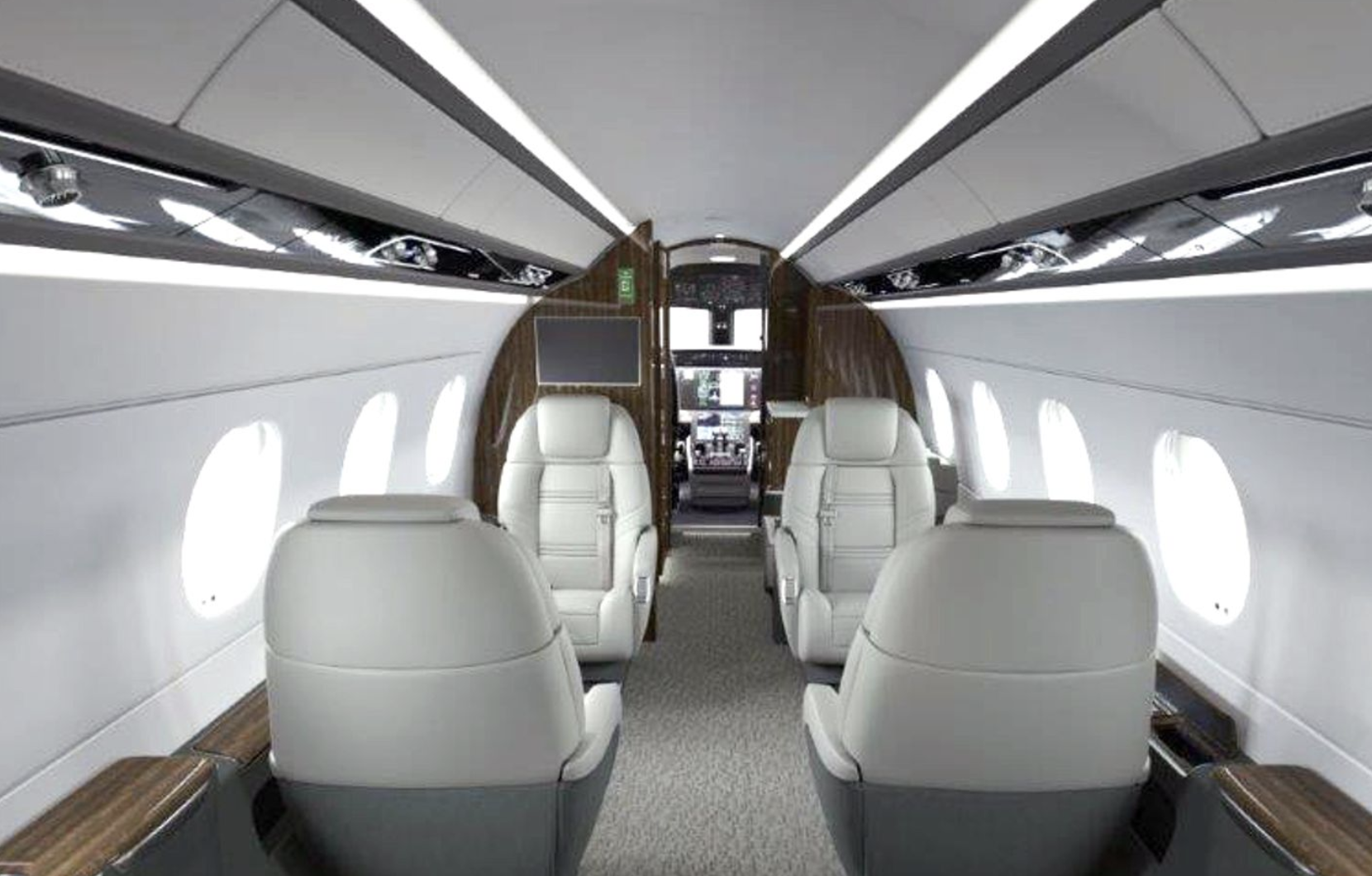Wheels Up announced a series of moves this afternoon, including a major acquisition, transitioning to the Phenom 300 and Challenger 300/350 platforms, WiFi upgrades, and a $332 million senior secured revolving credit facility. The Atlanta-based flight provider seeks to remake itself as a premium-tier option under the stewardship of Delta Air Lines, which led to a $500 investment package a year ago.
“In the year since we’ve invested in Wheels Up, their operational performance, financial progress, and the successful revamp of their customer offering have validated our decision to embark on this one-of-a-kind strategic partnership,” said Ed Bastian, CEO of Delta Air Lines.
He added, “Underpinned by those key improvements and further fueled by the forthcoming execution of this modernized fleet strategy, we feel more confident than ever that Wheels Up is on the right track to be a global leader in private aviation as we work together to build an unrivaled partnership spanning across commercial and private travel.”
The changes, from moving to the top-selling private jet types to state-of-the-art inflight connectivity, position Wheels Up as a programmatic alternative to the primarily fractional alternatives in those aircraft types, Wheels Up CEO George Mattson tells Private Jet Card Comparisons.
The asset purchase from GrandView Aviation brings 17 Embraer Phenom 300 and 300E light jets.
The purchase price is $105 million, subject to adjustments.
The best-selling light jets will replace its current Hawker 400s, Citation CJ3s, and midsize Citation XLS/Excel.
Mattson said Wheels Up will continue to offer the King Air fleet for the foreseeable future.
Challenger 300s and 350s will replace its aging Citation X super-midsize fleet.
The transition is expected to take three years.
Once completed, it will reduce its fleet age by an average of around 10 years.
Mattson says, “Fleet modernization is the next critical step in the journey of Wheels Up. We believe our flexible, accessible offerings across programmatic membership and global charter, enhanced through our one-of-a-kind strategic partnership with Delta Air Lines, already deliver the most customer-centric global aviation solutions available in the market today.”
He added, “We believe our fleet modernization strategy and the enabling transactions we are announcing today will allow us to deliver those solutions with a best-in-class aircraft fleet, with an elevated customer experience to match.”
READ: A brief history of airlines and private jet partnerships
Wheels Up financing
Wheels Up also entered a commitment letter with Bank of America for a new, five-year, up to $332 million senior secured revolving credit facility.
The revolving facility will close concurrently with the closing of the GrandView acquisition.
Both are targeted to close in the fourth quarter.
Wheels Up will use the funds for the GrandView acquisition, the redemption of all outstanding equipment notes on the company’s owned aircraft, and general corporate purposes.
The financing is also expected to add up to $115 million of additional cash to Wheels Up’s balance sheet and provide future conditional revolving borrowing availability.
Its Q3 earnings release and call are scheduled for Nov. 7.
Wheels Up expects to use that facility to acquire additional Phenom and Challenger aircraft.
Delta Air Lines, which recorded a net profit of $4.6 billion on $58 billion in revenues last year, is expected to provide credit support for the new financing.
Delta’s backing enhances “access to capital and on more attractive terms than would otherwise be available,” according to the announcement.
During its Q2 earnings call, Wheels Up CEO George Mattson teased the fleet refresh.
They also maintained that the company was on track to reach positive EBITDA by the end of the year.
Wheels Up to buy GrandView
The GrandView deal includes maintenance assets to support the fleet, its existing customer programs, and” most of the existing pilot group.”
The Maryland-based operator had a small membership program under the Altitude banner.
It is an as-available program that offers guaranteed rates and adds repositioning charges.
It also offers fixed route rates on an as-available basis.
Wheels Up will honor the terms of GrandView’s current Altitude member customers as it seeks to have them transition to its jet card program.
In June, Private Jet Card Comparisons exclusively reported that GrandView was for sale.
READ: This top 25 private jet operator could be sold
KKR-backed evacuation specialist Global Medical Response acquired the Maryland-based operator in March 2022.
The terms of that deal were not announced, but persons with knowledge say it was in the $250 million range.
From 2022 to 2023, GrandView slipped from 22nd to 24th on our list of top 30 charter/fractional operators.
GrandView will operate the Phenom 300s on Wheels Up’s behalf as they are moved to the Wheels Up Private Jets charter certificate.
Wheels Up will not continue with the organ transplant business, which was the focus of GrandView’s operations.
Challenger 300/350s
The super-midsize Challengers will come via acquisitions in the preowned market and long-term leases.
Rival FlyExclusive, currently the fifth-largest U.S. charter/fractional, has also started a fleet refresh program, saying it wants to add 20 Challenger 300/350s.
Wheels Up has agreed to sell all 13 of its currently owned Citation X aircraft to an unrelated third party as part of the transition.
It expects to lease a portion of the sold aircraft and amend the lease terms for other Citation X aircraft leased from the same buyer.
The agreement also provides the ability to replace leased aircraft with Challenger aircraft in the future.
Gogo WiFi upgrade
Wheels Up separately entered into a letter of intent with Gogo Business Aviation to equip the Phenom and Challenger aircraft it expects to acquire with Gogo Galileo HDX satellite-based WiFi.
Gogo’s low-earth-orbit satellite system is expected to deliver high bandwidth, low latency, global coverage, live streaming, and voice telephony capability.
Mattson says, “We anticipate that we will be one of the first and only domestic fleets of private aviation aircraft equipped with this level of capability. Like our partner Delta in the commercial aviation space, we want to provide the highest level of connectivity and performance that available technology delivers.”
As part of the agreement, Gogo has committed to complete certification for the Gogo Galileo HDX system and plans to have HDX certification on the Challenger and Phenom platforms by the middle of 2025.
What’s next?
GrandView Altitude customers can continue to fly on program rules during the term of their contracts.
Wheels Up members will see no changes to their program or pricing.
The decision to keep the King Air in the fleet speaks to a two-tiered approach to avoiding losing customers who bought Wheels Up because of its money-saving offerings for short hops.
Looking down the road and into the future, Mattson notes that the Phenom 300s will replace both light jets and midsize aircraft.
He says market pricing for the long-range Embraer light jets and capabilities tracks alongside the Excel/XLS airplanes that comprise a large supply of midsize category programs.
Wheels Up cost
According to Private Jet Card Comparisons’ database of more than 500 programs, the average hourly rate for light jets in Q3 was $8,078. Midsize jets were $9,534 per hour. Both rates include FET and fuel surcharges.
Currently, rates for non-days-based Phenom 300 jet card options with one-way pricing range from $8,850 to $11,657 per hour, including fuel surcharges and FET.
Wheels Up light jet’s capped hourly rate is $8,423, and the midsize rate is $9,676.
Both are based on a $200,000 deposit.
Next year, the Challenger 300 series aircraft will be introduced into Wheels Up’s fleet.
Availability will be on an as-requested charter basis and specific high-density program routes.
Executives say they will also offer Phenom 300-specific pricing shortly, although exact offerings have not been finalized.
We anticipate members could see Phenom 300-specific prices in addition to their light and midsized capped rates.
When it closes, the deal will give Wheels Up the world’s biggest Phenom 300 charter fleet.
In terms of fleet size, Mattson declined to discuss specifics.
However, he noted both the Phenom 300 and Challenger 300/350 platforms bring increased reliability and operational bandwidth, meaning Wheels Up can fly more missions with fewer tails.
That said, plans call for growing the company,
Wheels Up was operating 164 aircraft in June and is currently around 150, according to the company.
Expectations are that that number will not change materially over time.
“I think we are going to stay in that range,” Mattson says.
Regarding acquiring the new aircraft types, Mattson adds, “We are going to be mindful. If we can do it quicker, we will. We’re not going to hold ourselves to a fixed time.”
He declined to rule out buying another operator.
Plans also call for continuing with a consistent livery and standardized cabin interiors.
To that end, Mattson added that the company is discussing with Bombardier, Embraer, and other third-party providers.
Most of all, the move positions Wheels Up’s jet card and ad hoc charter offerings against NetJets and Flexjet fractional programs.
While both offer card options, they are more restrictive than the current Wheels Up jet card regarding callouts, peak days, blackouts, validity, etc.
Wheels Up may see some price-sensitive customers exit along with the Citation Xs, where coast-to-coast flights are often under $30,000 all-in, but that’s down the road.
As it seeks to tap into Delta’s corporate account database seeking premium options, it could well offset any attrition.
Mattson says there is plenty of demand in the current capped-rate service area to accommodate the new jet types.
However, he doesn’t rule out bringing destinations in the Caribbean, Hawaii, or Mexico back into the capped-rate service area.
READ: Wheels Up GrandView SEC filing
WATCH: Wheels Up NBAA press conference with CEO George Mattson












